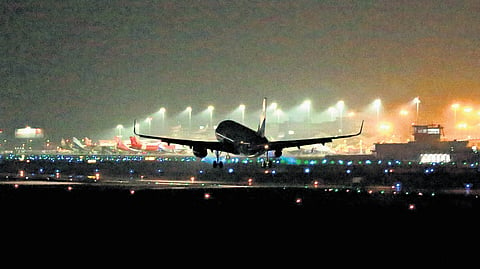

KOCHI: As part of enhancing preparedness against potential bomb threats, the Cochin International Airport Ltd (CIAL) has initiated measures to strengthen its specialised bomb detection and disposal squad (BDDS) by procuring an advanced equipment that can contain blasts.
“We’re purchasing one more threat containment vessel (TCV), capable of containing a blast of minimum 8 kg of high explosives (TNT) or an equivalent quantity of explosives, for deployment at the domestic terminal. The complete system, including a remotely operated vehicle (ROV) will be handed over to the CISF’s quick reaction team (QRT) and would be put in place in another four months,” said a CIAL official.
The Kochi airport already has one TCV, imported from Canada, and it is deployed at the international terminal. The new equipment is being purchased at an estimated Rs 13.50 crore.
Explaining the functioning of the BDDS, the official said it would be deployed upon noticing an unidentified baggage, which is suspected to be a bomb following primary inspection by the dog and bomb detection squads.
“The TCV will have a remote mobility platform that can move the containment vessel off the trailer and closer to the threat. A remotely operated robot will then lift the bag and place it inside the TCV, which will contain the blast. If the bomb has over 8 kg of high explosive, it will be taken to the specially-made bomb cooling pit facility inside the airport using the trailer. Since the threat is placed inside the TCV, it can be safely carried. It is then safely detonated,” the official said.
CIAL recently completed the construction of the bomb cooling pit for `40 lakh. The new TCV will be able to accommodate a device with nuclear, chemical or biological hazard, without letting any NBC gases escape into the environment. It will have a facility to measure stress and strain of the system after each detonation.
“We’ve floated the tender for the TCV. It should be reusable in the sense that it withstands repeated detonations with full-capacity explosives. We’ll carry out a testing, where three blasts of 8 kg with High Explosive (TNT) will be done inside the TCV. There should be no physical damage to the vessel and associated accessories, and the equipment should be ready for the next blast within two hours during trials,” the official added.
As per the tender document, the body of the TCV should be made with high grade steel, but the weight of the complete system, including the container, should not exceed 6,000 kg.